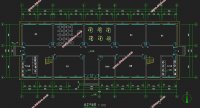四层2600平米合肥某职业中学教学楼设计(含建筑图结构图)(任务书,开题报告,外文翻译,设计计算书11000字,CAD图18张)
摘 要
本工程为实际应用课题,工程位于安徽省合肥市,为合肥某高级职业中学2号教学楼设计。建筑场地长宽约长44m 宽15m,建筑面积约2600m2,建筑高度约15m,室内外高差0.45m,本工程建筑层数为四层,各层层高均为3.6m。建筑结构安全等级为二级,设计使用年限为50年,地基基础设计等级为丙级,框架抗震等级为三级,建筑抗震设防类别为丙类,抗震设防烈度为7 度(基本地震加速度为 0.10 g) ,地震分组为第一组。
根据建筑设计和结构承重、抗震方面的要求以及场地地质条件,合理地进行结构选型和结构整体布置,确定各种结构构件的尺寸,选取一榀主要横向结构框架进行结构设计计算,用计算结构力学程序对该榀结构框架进行电算与手算结果进行对比分析;完成楼梯设计和基础设计;用PKPM软件对整栋框架结构进行PKPM电算;绘制出相关建筑和结构施工图。
通过本模拟设计,可使学生综合土木工程专业各课程的知识,了解建筑设计方法,熟悉结构设计与分析过程。
关键词:弯矩;剪力;配筋;抗震
Teaching Building No. 2, a senior vocational school in Hefei Design
Abstract
This project is the practical application of the subject , the project is located in Hefei, Anhui Province , Hefei No. 2, a senior vocational school teaching building design . Long length 44m wide building site width 15m, construction area of about 2600m2, building height of about 15m, indoor and outdoor height 0.45m, the engineering and construction of four layers , each layer storey are 3.6m. Security level for the two structures , the design life of 50 years , foundation design rating of C , the framework for the three seismic level , building earthquake-proof Class C category , seismic intensity of 7 degrees ( basic seismic acceleration was 0.10 g), the first set of seismic packet .
According to architectural design and structural loading , seismic requirements and aspects of the site geological conditions , reasonably structured selection and arrangement of the whole structure , determine the size of the various structural members , select a transverse specimens of major structural framework for structural design calculations , with the calculated structure structural mechanics framework program of the specimens of Computing and hand calculated results were compared ; complete the stair design and basic design ; PKPM software with the entire frame structure PKPM Computing ; mapping out the structure of the building and construction plans .
Through this simulation designed to allow students a comprehensive knowledge of various civil engineering professional courses , understand architectural design approach , familiar with the structural design and analysis process.
keyword: moment; shear; reinforcement; seismic
1.1工程概况
本工程为实际应用课题,地点在安徽省合肥市,为合肥某高级职业中学2号教学楼设计。结构为4层钢筋混凝土框架,层高均为3.6m.
1、气象资料
基本风压:0.35kN/m2 ,地面粗糙度为B类;
基本雪压:0.60 kN/m2
2、工程地质资料
(1)经勘察查明,根据地层的沉积特点和物理力学特性自上而下共可划分为3层,各土层描述如下:
①层:素填土,灰褐色,主要成分为粉质粘土。该层土场地普遍分布,约0.5m厚。
②层:粉质粘土,褐色、褐黄色。该层土场地普遍分布,约5.2m厚。。
③层: 粉质粘土,棕黄色,坚硬。该层土本次钻探未钻穿。
(2)基础型式及持力层:本工程采用柱下独立基础;基础持力层位于第2层粉质粘土,地基承载力特征值 Fak=260Kpa
(3)本工程地下水埋深为10米左右,地下水对钢筋混凝土结构不具侵蚀性。
(4) 建筑场地类别:Ⅱ类(特征周期0.35s)。。
3、施工技术条件:本工程由建筑工程公司承建,设备齐全,技术良好。
4、材料供应:三材及一般材料能按计划及时供应。
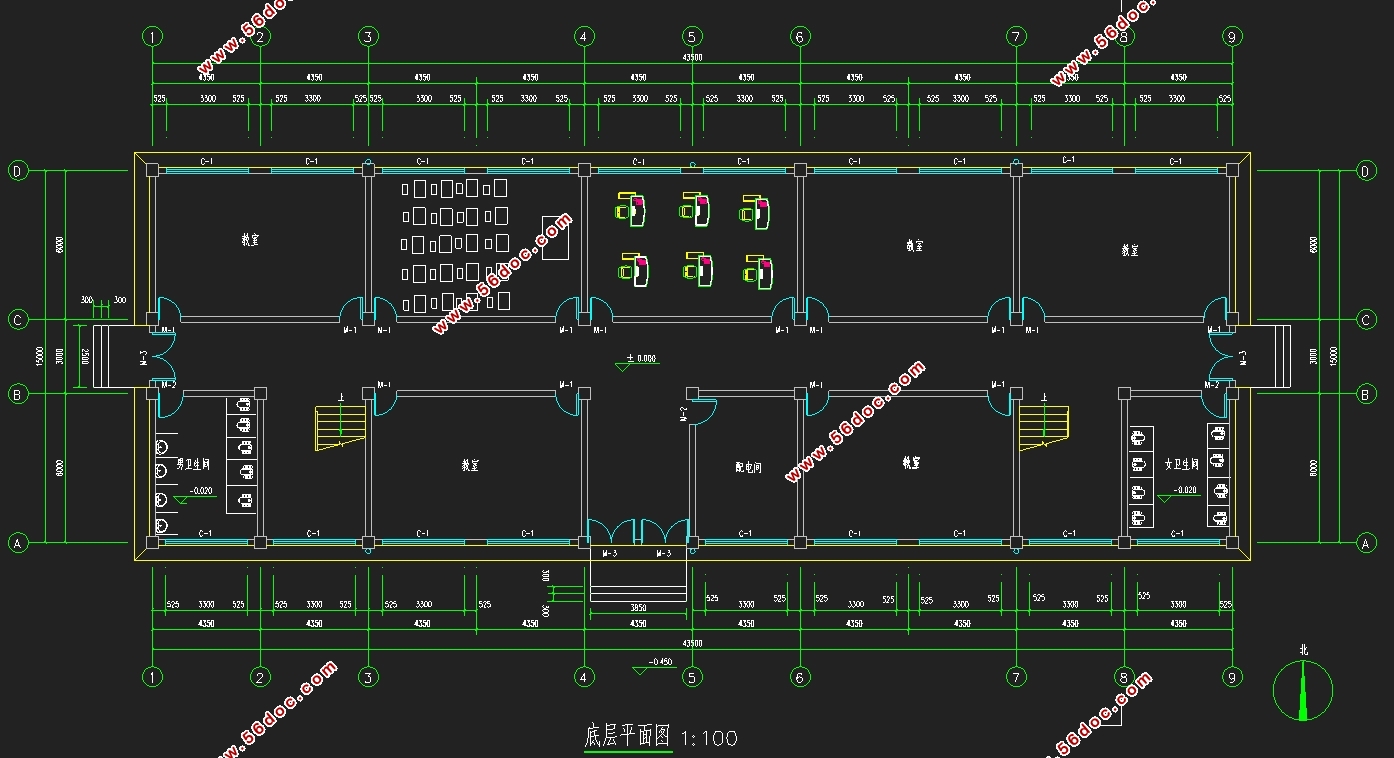
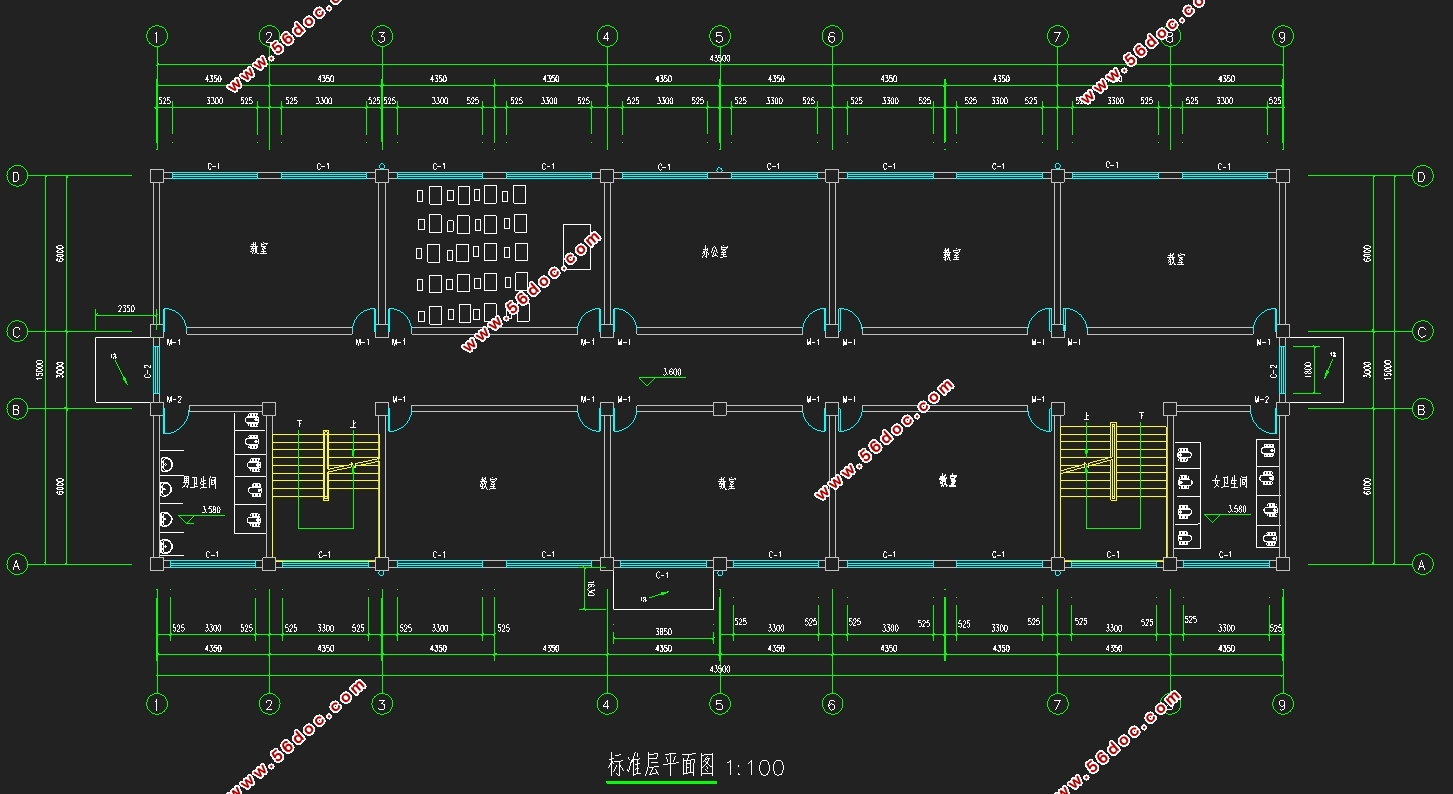
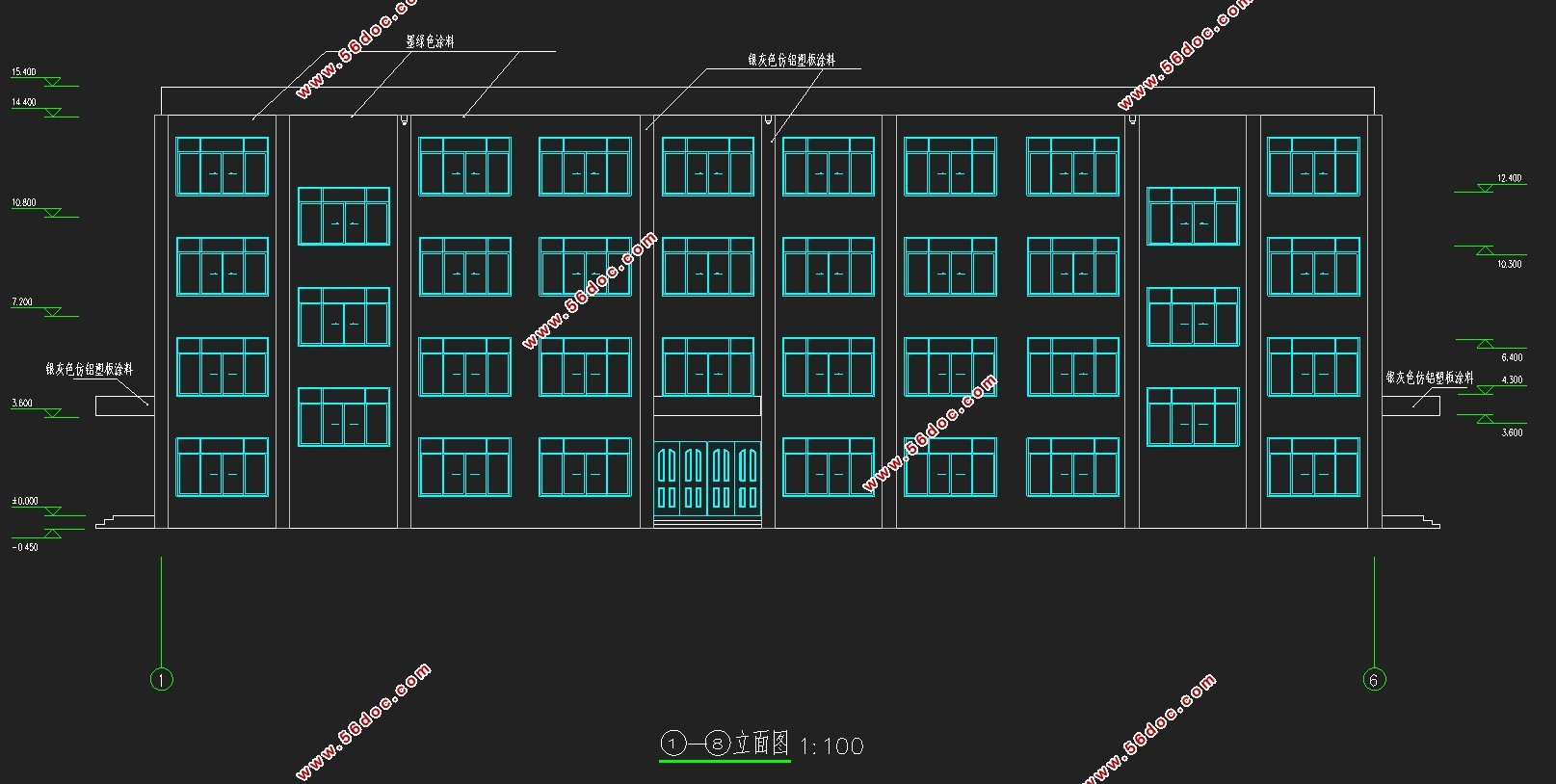
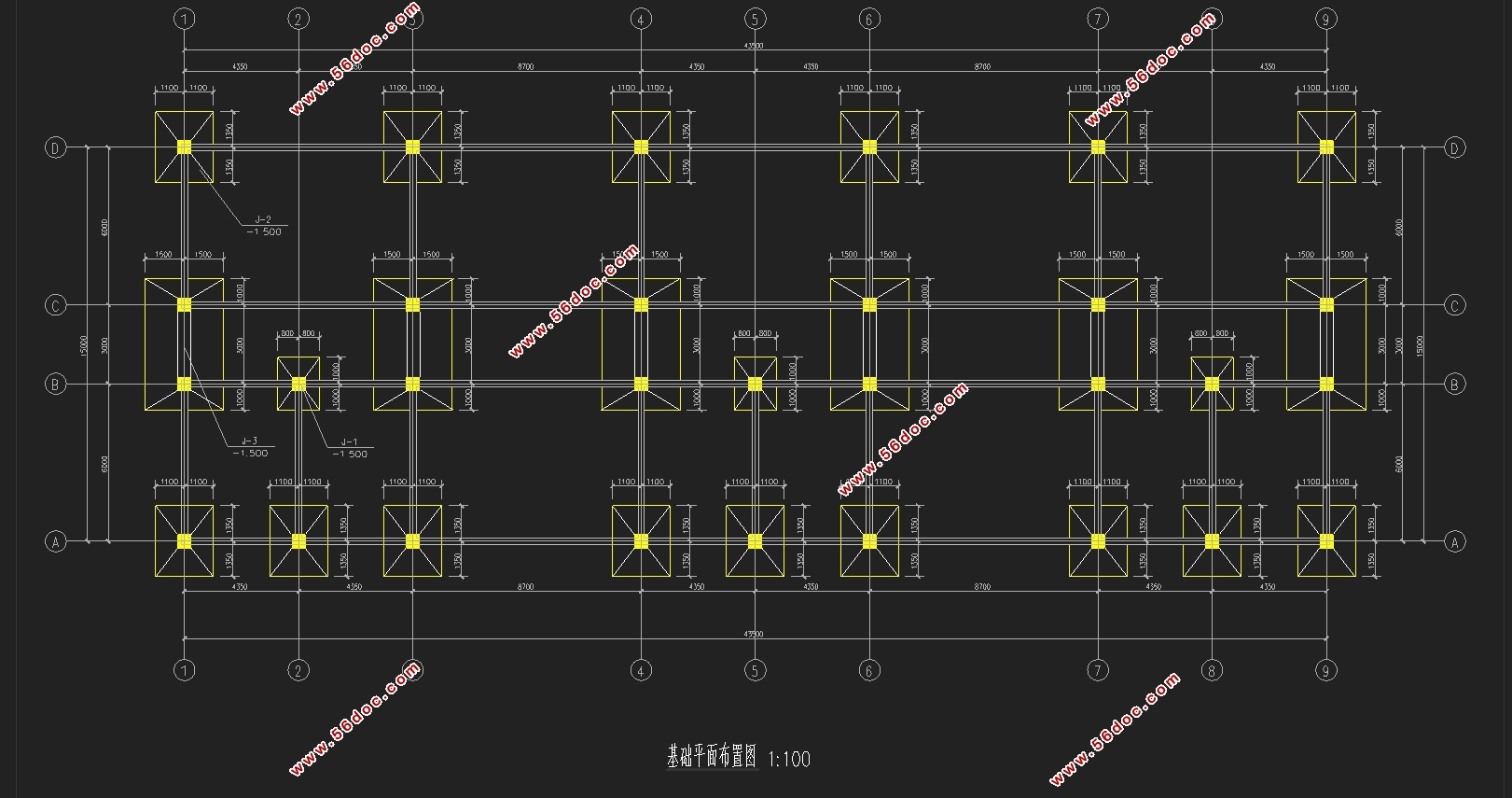
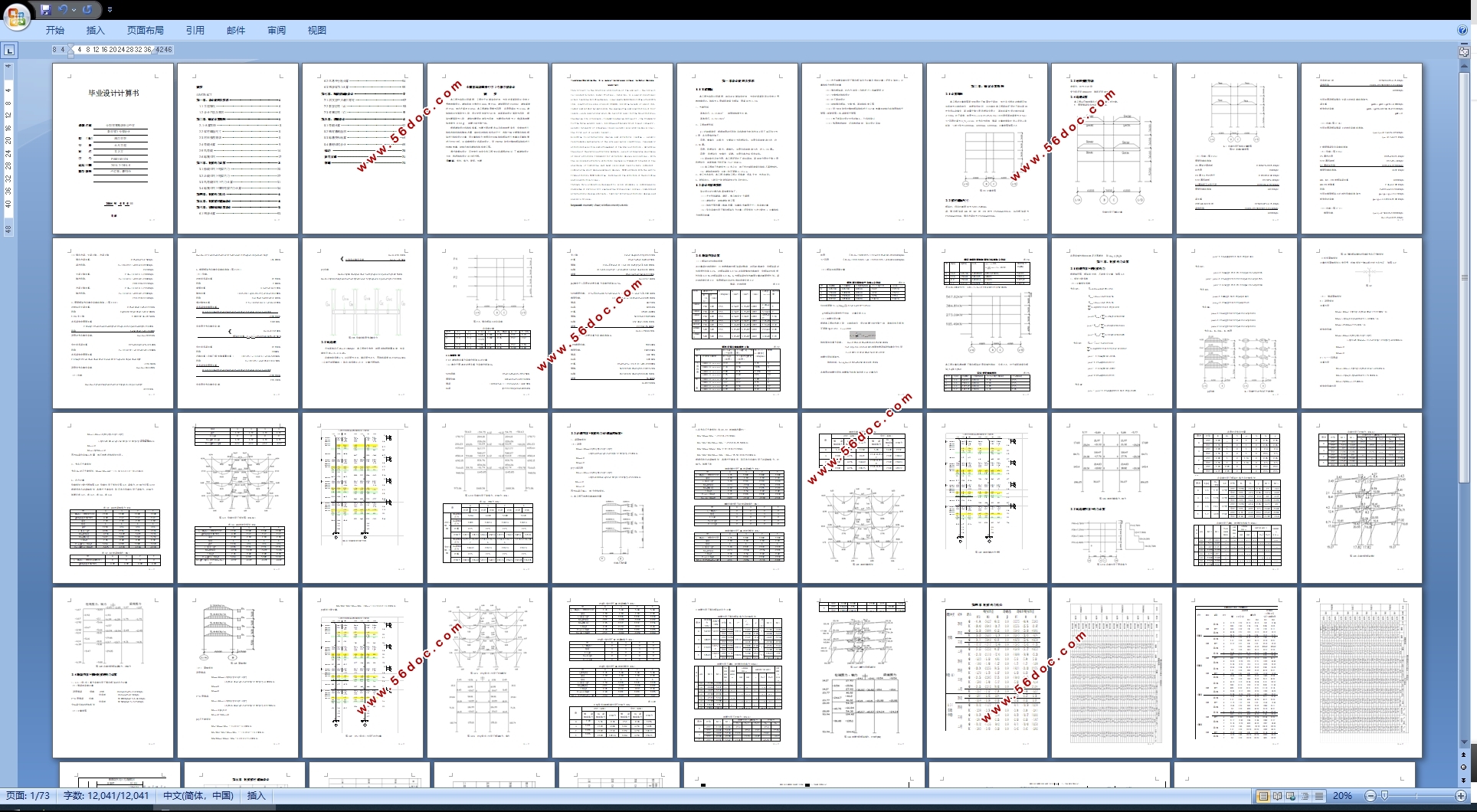
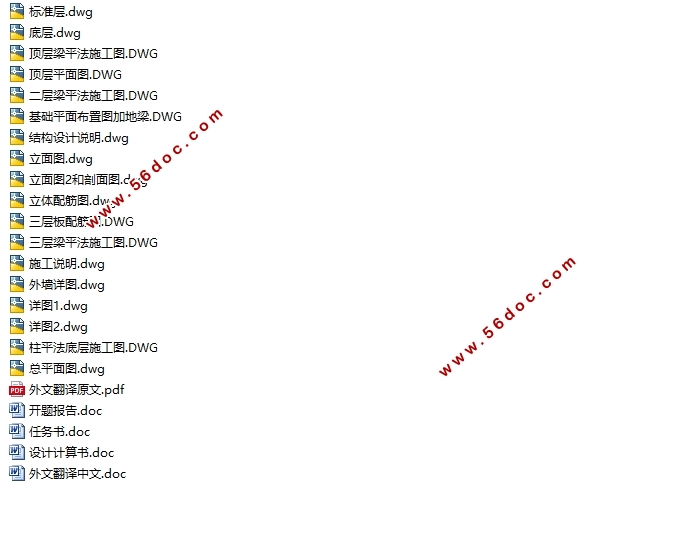
目录
摘要
ABSTRACT
第一章、设计资料及要求•••••••••••••••••••••••••••••••••••6
1.1工程概况••••••••••••••••••••••••••••••••••••••••••••6
1.2设计内容及要求••••••••••••••••••••••••••••••••••••••6
第二章、确定计算简图•••••••••••••••••••••••••••••••••••••8
2..1计算简图••••••••••••••••••••••••••••••••••••••••••••8
2.2梁柱截面尺寸••••••••••••••••••••••••••••••••••••••••8
2.3材料强度等级••••••••••••••••••••••••••••••••••••••••8
2.4荷载计算 •••••••••••••••••••••••••••••••••••••••••••9
2.5风荷载•••••••••••••••••••••••••••••••••••••••••••••14
2.6地震作用••••••••••••••••••••••••••••••••••••••••••••17
第三章、框架内力计算••••••••••••••••••••••••••••••••••••20
3.1恒载作用下框架内力•••••••••••••••••••••••••••••••••20
3.2活载作用下框架内力•••••••••••••••••••••••••••••••••27
3.3风荷载作用下内力计算•••••••••••••••••••••••••••••••31
3.4地震作用下横向框架内力计算•••••••••••••••••••••••••34
第四章、框架内力组合••••••••••••••••••••••••••••••••••••41
第五章、框架梁柱截面设计••••••••••••••••••••••••••••••••46
第六章、楼梯结构计算设计••••••••••••••••••••••••••••••••53
6.1梯段计算•••••••••••••••••••••••••••••••••••••••••••53
6.2休息平台板计算•••••••••••••••••••••••••••••••••••••54
6.3梯段梁TL1计算•••••••••••••••••••••••••••••••••••••55
第七章、现浇楼面板设计••••••••••••••••••••••••••••••••••57
7.1求支座中点最大弯矩••••••••••••••••••••••••••••••••••57
7.2教室区格(A)•••••••••••••••••••••••••••••••••••••••58
7.3走廊区格(C)•••••••••••••••••••••••••••••••••••••••59
第八章、基础设计••••••••••••••••••••••••••••••••••••••••62
8.1荷载计算•••••••••••••••••••••••••••••••••••••••••••62
8.2确定基底面积•••••••••••••••••••••••••••••••••••••••62
8.3地基变形验算•••••••••••••••••••••••••••••••••••••••65
8.4基础结构设计•••••••••••••••••••••••••••••••••••••••65
结语 •••••••••••••••••••••••••••••••••••••••••••••70
参考文献••••••••••••••••••••••••••••••••••••••••••71
致谢••••••••••••••••••••••••••••••••••••••••••••••73
|
